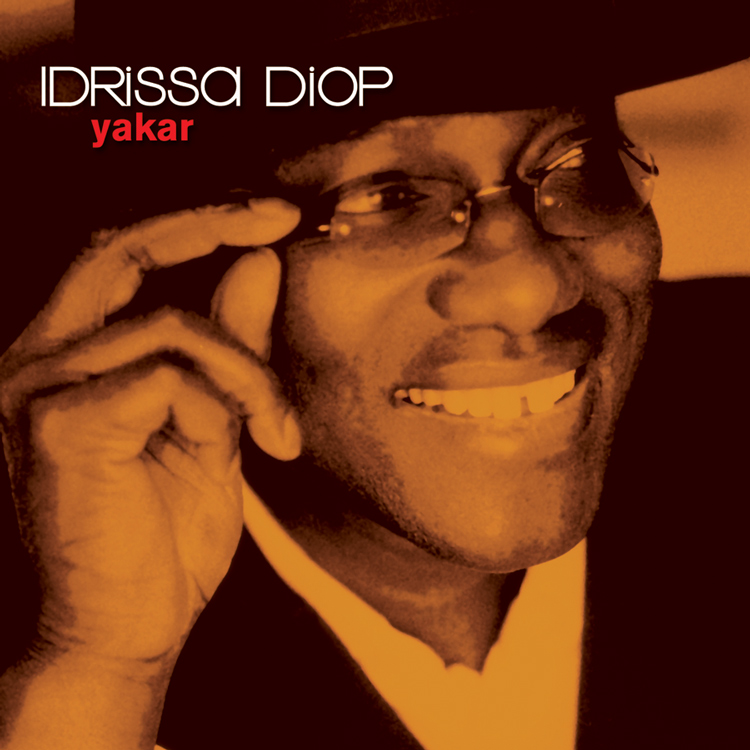Senegalese percussionist and vocalist Idrissa Diop is a Peulh. The Peulhs are one of the several distinct ethnic groups in Senegal, and are nomads by tradition. Idrissa Diop, likewise, is an artistic nomad of sorts, searching far and wide to join together elements from many different stylistic idioms, such as jazz, funk, Latin music, all of which contribute to the whole.
One of nine children, Idrissa always knew he wanted to be a musician. His family, concerned about the insecurity of such an occupation, discouraged this pursuit, and Idrissa studied in secret. Later, though, as his skill progressed and he began to develop a following playing in bands in his native Dakar, his talent was recognized.
Idrissa and his band The Sahel de Dakar played venues such as The Sael, at which he was seen by musicians such as Youssou N’Dour, for whom Idrissa wrote several songs which continue to be a part of Youssou’s repertoire. The sound of Idrissa’s group, which strongly embraced the jazz vernacular, contributed significantly to the modernization of popular music in Senegal.
Moving to France, Idrissa continued to expand his sphere of influence. His Afro-rock-fusion group, Sixun, played throughout the world and recorded several CDs, including Couleurs, Rebelle and Conscience Collective. He also appeared on albums by artists such as Ralph Thamar (Africains et Antillais), St Germain (their critically acclaimed CD, Tourist) and Ray Lema (Safi), to name a few.
Idrissa was selected by the BBC for their Millennium Broadcast, where he performed for an international listening audience.
These achievements culminated in the recording of CD, Yakar, which in turn led to he serendipitous introduction to Carlos Santana. Santana was given one of Idrissa’s earlier recordings by an acquaintance. Santana chose Idrissa as his opening act for his Paris concert, and they began a collaboration on writing and recording projects.
Though Idrissa doesn’t identify himself publicly with any specific political cause per se, he has a deeply rooted concern for social wrongs which is expressed through his writing. In the introduction to the song Tire Ailleurs (Shoot Elsewhere), from Yakar (Tinder Records), Idrissa said:
This song talks about the Senegalese soldiers that came to help French people during the war. They were first in line during the fighting. Today French people are disturbed by the soldiers kids. They would like them to go elsewhere. They forgot how happy they were to see them fight for French colours. Transmit it. Teach your kids what you know, they will teach theirs, like the plant gives to the wind, the seeds that make them eternally reborn.
Discography:
Gorgui (Discafrique Records, 1977)
Rebelle (Musidisc, 1990)
Tribal Pursuit (Flarenasch, 1992)
Idrissa Diop (Remark Records, 1994)
Universal (Island Records France, 2003)
Diamonoye Tiopité (L’ Époque De L’ Évolution) (Teranga Beat, 2010)


